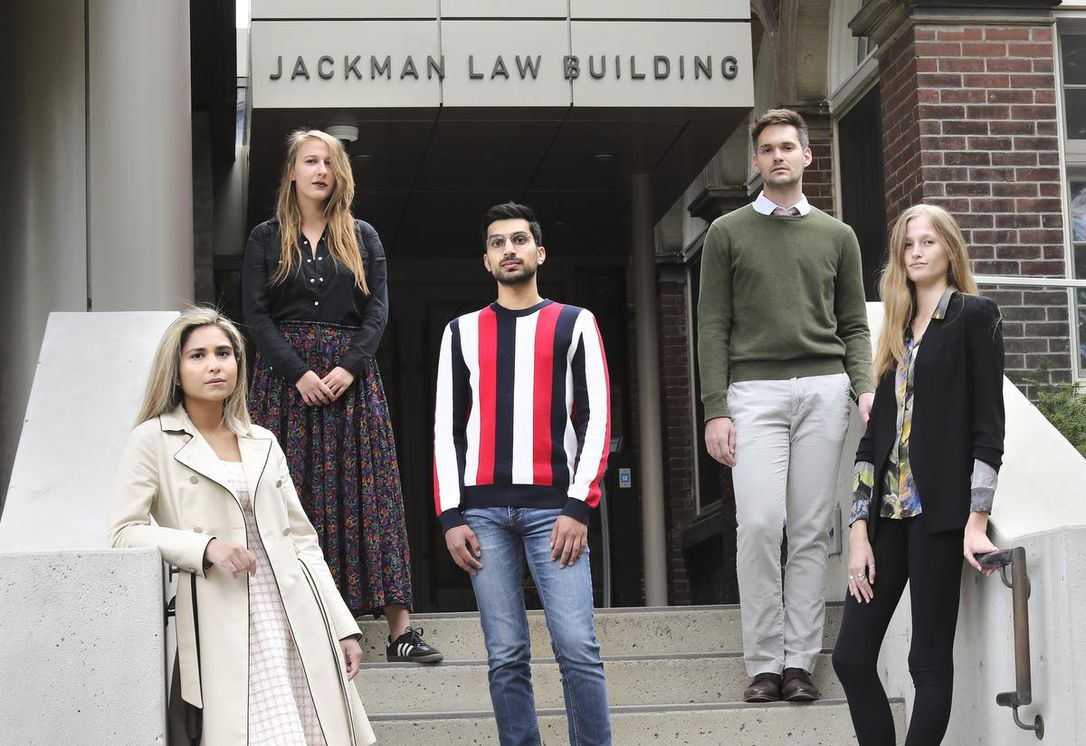In a drastic escalation of the controversy surrounding a hiring decision at the University of Toronto’s Faculty of Law, Canada’s largest academic federation is recommending a censure of the university….

In a drastic escalation of the controversy surrounding a hiring decision at the University of Toronto’s Faculty of Law, Canada’s largest academic federation is recommending a censure of the university administration unless it rectifies the situation.
The damning motion was passed Thursday evening by the executive committee of the Canadian Association of University Teachers, or CAUT, a federation of independent associations and trade unions that represents 72,000 academic and general staff at 125 universities and colleges across the country.
It states that “unless satisfactory steps are taken by the University of Toronto administration to remedy the violations of academic freedom involving the hiring of Dr. Valentina Azarova as director of the International Human Rights Program (IHRP), censure will be imposed on the University of Toronto administration at the spring meeting of council,” CAUT executive director David Robinson told the Star.
Censures are extremely rare; the last time a university was censured was 15 years ago — and that was over governance issues. This motion to censure, that the executive committee is recommending to its governing body on Nov. 27, is about violations of academic freedom.
The governing body, or council, has not rejected such a motion before, Robinson said. The university administration will have about six months to act, starting Nov. 27.
The Faculty of Law has been embroiled in controversy after its abrupt decision last month to cancel the hiring of Azarova even though she was the unanimous choice of the faculty’s own hiring committee. A sitting judge at the Tax Court of Canada and faculty donor is alleged to have expressed concerns over her past academic work on Israeli human rights abuses on Palestinian territories, sparking accusations of undue interference.
The university has denied it buckled under pressure but not that such pressure was applied. The Tax Court has said it would not be commenting. Complaints against the judge have been made to the Canadian Judicial Council, the body that investigates and disciplines judges when necessary.
A censure means CAUT members will be asked not to accept appointments at the censured institution, not to accept invitations to speak or participate in academic conferences there; not to accept any distinction or honour that may be offered by that institution, according to CAUT procedures.
The ramifications are global; CAUT itself will “widely publicize” the dispute and ask associations of academic staff in other countries to respect the censure.
CAUT’s policy states that “the imposition of censure is an action with important implications for the academic community. It means that after exhaustive investigation and consultation, CAUT has concluded … the administration has breached one or several of the fundamental principles of academic freedom and tenure, governance and respect for negotiated agreements.”
The entire faculty advisory board of the International Human Rights Program resigned in protest last month over the decision to not hire Azarova. One of them was on the three-member hiring committee. A second member of that hiring committee, Vincent Wong, quit from his paying job at the university.
However, law school students will likely find some relief with the news Thursday that the program is to continue.
Professor Emerita Rebecca Cook, who was the founder of the program, was appointed interim director, Faculty of Law Dean Edward Iacobucci told staff in an email that was leaked to the Star.
“I know that there is a great deal of concern about the International Human Rights Program’s status both for this year, and going forward. Put simply, the IHRP is and will continue to be a critically important program for the faculty,” the dean’s note said. The central focus of Cook’s work will be future plans for the IHRP, he wrote.
This development comes a day after the university announced an “impartial review” of the process that led to the decision to not hire Azarova. Critics slammed the announcement of the review, pointing out that participation in the review process is not mandatory, nor the review independent.
Several people close to the matter told the Star it was problematic that the reviewer would be reporting to the vice-president of human resources, who has herself been involved in defending the dean. The report is scheduled to be completed by mid-January.
Iacobucci’s term as dean ends in December.
